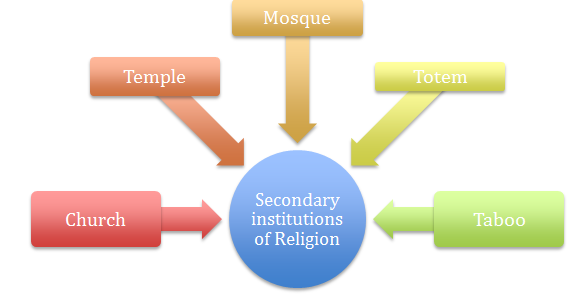Imagine a world without rules, without established ways of doing things. Would we be able to function? Would society even exist? The answer, in all likelihood, is a resounding no. This is where social institutions come in – they are the invisible frameworks that structure our daily lives, providing a sense of order and predictability. But what exactly are social institutions, and why are they so crucial?

Image: cloudshareinfo.blogspot.com
This article delves into the concept of social institutions, exploring their definitions, functions, and impact on our lives. We’ll delve into some of the most influential institutions, uncovering how they have evolved over time and continue to adapt to changing societal needs.
Defining the Pillars of Society
Social institutions are complex entities, often taken for granted until we witness their disruption. Put simply, they are established systems of social behavior that fulfill essential societal needs. They are not simply physical structures; rather, they encompass a set of norms, values, and beliefs that guide behavior and interactions within a given society. Imagine them as the blueprints of our social world.
Several key elements define a social institution:
- Shared Norms and Values: These are the unwritten rules and principles that dictate appropriate behavior within the institution. Think of the expectations of behavior in a classroom versus a sporting event.
- Established Roles: Institutions assign specific roles and responsibilities to individuals, creating a sense of order and division of labor. Teachers, judges, and athletes all have distinct roles that contribute to the functioning of their respective institutions.
- Defined Goals: Institutions have clear objectives they strive to achieve – educating students, dispensing justice, or fostering healthy competition.
- Formal and Informal Structures: Some institutions are formalized through written laws and regulations, like the legal system. Others, like family, are less formalized but still governed by shared values and traditions.
The Foundational Institutions
Social institutions are like the pillars upon which society is built. Several key institutions play fundamental roles, shaping everything from our sense of identity to our economic prosperity. These include:
- Family: This is the bedrock of society, providing care, socialization, and emotional support. Family structures have evolved over time, encompassing diverse forms and configurations, but its core function remains vital.
- Education: Education imparts knowledge, skills, and values, preparing individuals for participation in the wider society. Education institutions, from early childhood to higher education, shape our beliefs, critical thinking abilities, and career paths.
- Religion: Religions provide spiritual meaning, moral guidance, and a sense of community. Faith institutions act as sources of comfort, ritual, and cultural identity, often influencing laws and societal norms.
- Economy: The economic system governs the production, distribution, and consumption of goods and services. It shapes our work life, our financial well-being, and our overall standard of living.
- Government: This institution establishes and enforces laws, maintains order, and provides public services. It works to ensure the safety and security of its citizens, while also balancing individual freedom with collective needs.
- Healthcare: Healthcare systems are dedicated to maintaining the physical and mental well-being of individuals. Hospitals, clinics, and healthcare providers play a crucial role in managing illness, preventing disease, and promoting health.
A Deeper Look: Evolution and Interplay
Social institutions are not static; they constantly evolve in response to changing social and technological landscapes. Think of the transformation of the family structure in recent decades, with the increasing prevalence of single-parent households, blended families, and same-sex couples. Similarly, the advent of the internet and digital communication has revolutionized the ways we learn, work, and connect, demanding adaptation from educational institutions and the economy.
These institutions are also deeply interconnected, influencing and impacting one another. For example, government policies can profoundly affect the economy and education system. Changes in family structures can impact the needs and demands placed on healthcare institutions. Understanding these interplays is crucial to comprehending the intricate web of forces that shape our societies.

Image: fabalabse.com
Harnessing the Power of Institutions
We may not always realize it, but social institutions hold immense power to shape our lives. As citizens, we have a responsibility to engage with these institutions, advocating for their improvement and working to ensure they serve the best interests of all. Here are some ways to use your voice:
- Be informed: Stay updated on the current trends, challenges, and policies impacting institutions relevant to you.
- Participate: Engage in public forums, vote in elections, and contribute to social movements that promote positive change.
- Seek representation: Advocate for fair representation of diverse voices within institutions, ensuring that marginalized communities have their needs considered.
Social Institutions Are Best Defined As
A Call to Action
Social institutions are the building blocks of our society, shaping our values, behaviors, and opportunities. By understanding their functions, recognizing their power, and engaging meaningfully with them, we can create a more just, equitable, and inclusive future. Let’s not take these invisible forces for granted; instead, let’s actively participate in their evolution and strive to build a better world together.






